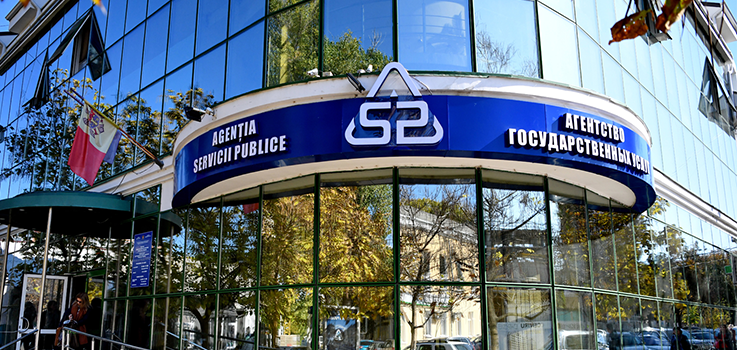Access to a part of the information held by the Public Services Agency (PSA) remains problematic, according to some journalists. At the same time, access to the databases owned by this institution is still paid, in spite of the commitments made by Mircea Esanu, the PSA Director, in his discussions with the media representatives shortly after his appointment. The PSA Director affirms that the decision to provide free access to the databases is influenced by a number of factors. This topic was addressed during the Mass Media Forum 2022, in a debate with the participation of journalists and representatives of the state institutions and the regulatory authorities.
“On the one hand, there are some improvements in terms of access to information, I mean cooperation with the Agency for Electronic Government which takes over the data from the PSA; yet on the other hand, unfortunately, I notice certain emerging problems. I would like to mention physical access to the register of companies and to that of non-governmental organizations managed by the PSA. This is a paid service frequently used by us as investigative journalists. The problems appeared this summer. From the practical point of view, access is partly restricted, sometimes even denied. There is no clear explanation why it is so. Meanwhile, the procedure has been modified; it has become even more complicated. More than a year ago, we were promised free access to the databases when the governance changed. We still have to pay for it. Financially, it’s really hard. However, we’re making an effort to find some financial resources to be able to access the databases,” Liuba Sevciuc, co-founder of the Cu Sens media project, emphasizes.
Mircea Esanu, the PSA Director since August 2021, affirms that the National Center for Personal Data Protection (NCPDP) is a key institution which could balance a number of the aspects referred to by the journalist.
“The speed at which we move in this direction is influenced by several factors. Currently, the NCPDP is a key institution which could balance many of the aspects Liuba Sevciuc refers to. (…) We’ve digitized a good share of the information we’ve already made public. For instance, access to the data from the Cadastre is not a problem for journalists today, because it is digital. In fact, we don’t have a state register of legal entities. What we are currently doing is digitizing, scanning the entire archive of legal entities. We have already initiated this process with our colleagues from the World Bank. Next year, we will have a new register of legal entities which will include not only companies, but also non-profit and political organizations. Nowadays, we have a system which has unfortunately fallen short of our expectations. Let the others answer why these registers have not been made electronic before. We’ve got 180 000 files of legal entities which are exclusively on paper, and it’s a great vulnerability for the state,” Mircea Esanu explains.
The PSA Director mentions that, in a short while, a temporary solution for email communication will be announced for access to the Register of Legal Entities until the new register emerges. “The applicant’s physical presence at the PSA headquarters will no longer be required. We’ll be scanning and sending the documents electronically. But the question is: what will remain in the documents, according to the NCPDP? We could also find ourselves in a situation where half a document could be eliminated, just like in court decisions,” Mircea Esanu said, specifying in this context that the tariffs paid by journalists were stipulated by the legislation, and the PSA did not play the part of a decision maker.
Recently, during the Media Azi broadcast, Denis Cotofan, the head of the Compliance Department within the CNPDCP, explained that the Law on Personal Data Protection should not be applied to legal entities or to the information related to a company’s history.
The Mass Media Forum 2022, an event held on November 22-23, is organized by the Press Council and Freedom House in partnership with the Independent Press Association, the Independent Journalism Center, and the Electronic Press Association.
